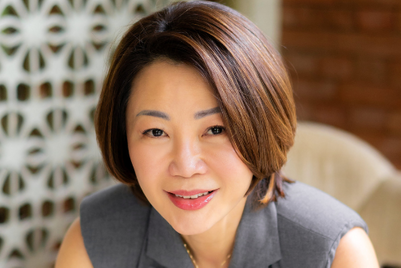
Last year, for example, Alibaba alone reported US$14.3 billion in sales on that day, almost double what all US ecommerce retailers raked in for the entire Thanksgiving weekend. And Singles Day sales have soared by double digits each year; while Black Friday posts a few percentage points in gains (and sometimes losses).
Much of this comparison is based on funny numbers and is a little misleading. Typically, the comparisons only include online sales, which are huge for Singles Day and anemic for Black Friday. In fact, the entirety of Black Friday weekend usually logs around $50 billion in sales, much more than Singles Day. However, Black Friday is historically distinct and comes from a quite different place.
Traditionally the day after Thanksgiving, Black Friday got going when department stores—most notably Macy’s—sponsored Thanksgiving Day parades and used them to advertise sales that began the next day. The term itself is not positive at all. It originated as a complaint by Philadelphia police officers about the headaches caused by traffic jams on that day. In fact, Black Friday has always been associated with long lines and headaches.
|
More on Singles Day: |
Over the years, it has lost much of its focus. Gone largely are the parades and promotional fun that traditionally kicked it off. Shopping activity has spread over the entire weekend and even into the weeks before and after the day. It has even taken on an ambiguous and crass reputation. When it rolls around, new stories often focus on injuries caused by people shoving each other out of the way to get to heavily discounted televisions .It has become more chore than celebration.
Singles Day is something else completely. Some of the big differences include:
It is a real (if not official) holiday. Singles Day has its origins as an unofficial holiday in which single people were supposed to treat themselves. In 2009, Alibaba took that concept and ran with it, eventually making it into a “treat yourself” day for everyone, couples included.
It is an event, not just a sale. In a way, Singles Day updates the holiday parade and brings some spectacle back. Alibaba, for example, hosts a four-hour gala the day before, headlined by A-list Asian singers and other talent (last year’s version featured a cameo by Daniel Craig). Alibaba’s competitors, such as JD.com, do much the same.
It builds excitement. As Jack Ma, CEO of Alibaba, has said, “[Singles Day} has evolved far beyond a 24-hours sales event. [In the weeks leading up to the day] consumers will discover, explore, play, watch, comment, share, recommend, and shop across our entire ecosystem with our merchants both online and offline.” As a result, brands are forced to ramp up massive promotional programs in the month before, in hopes of enticing people to put things in their carts.
It’s mobile. Black Friday primarily sticks to its brick-and-mortar roots. It’s about going to a physical store, to shop through chaos and long lines. Most of the commerce on Singles Day is in mobile malls. As a result, telecoms have hopped onto the bandwagon (partially subsidized by Alibaba) and now provide free mobile bandwidth in the window-shopping phase of the event.
It’s global. Singles Day may have started in China, but it’s rapidly moving around the world. Big celebrations now take place in countries such as Russia. A smattering of US companies already take part, and if consumers like, they can shop directly on 11/11 using the Aliexpress app.
It’s about deep discounts. Singles Day discounts are huge, topping 60 percent in some cases. Black Friday discounts average around 25 percent—making it a much less compelling day to shop, especially given the long lines. Then again, as you might expect, Singles Day retailers often use the event to dump old stock, so buyer beware.
It is both critical to some companies’ success and a logistical nightmare. Some brands see 70 percent of their yearly revenue on this one day. As a result, the sheer volume of activity leads to a logistics and planning burden that requires months of preparation. Overnight offices become warehouses, every employee becomes a delivery person, and product can still take months to arrive.
Of course, the biggest difference is that while Black Friday sales seem to be declining, Singles Day is on the rise. This year, Alibaba has been touting the participation of major Western brands, such as Coke and Ocean Spray. Many more are due to follow. So what should brands do over here? The best answer is: jump on board in China if you can and hope that that the Singles Day fun soon becomes a shopping holiday in the US as well.
 Frank Kochenash is global SVP for retail and Malcolm Wild is APAC chief technology officer with Possible. Frank Kochenash is global SVP for retail and Malcolm Wild is APAC chief technology officer with Possible. |



.jpg&h=334&w=500&q=100&v=20250320&c=1)


.jpg&h=334&w=500&q=100&v=20250320&c=1)




+(900+x+600+px)+(3).png&h=334&w=500&q=100&v=20250320&c=1)

+(4).jpg&h=268&w=401&q=100&v=20250320&c=1)


.png&h=268&w=401&q=100&v=20250320&c=1)

.jpg&h=268&w=401&q=100&v=20250320&c=1)
